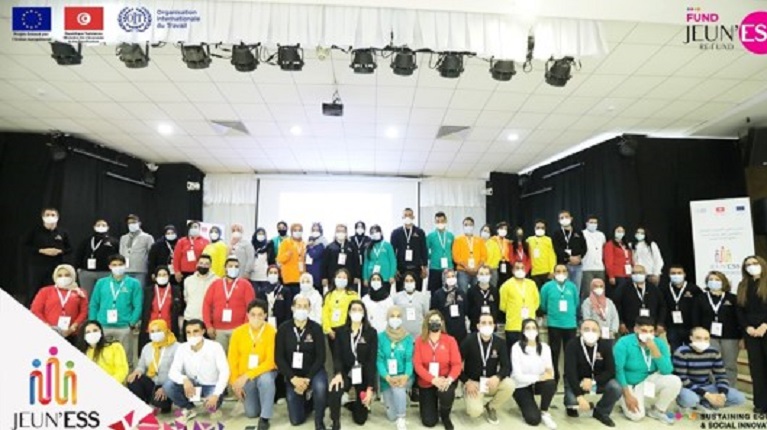JEUN’ESS: Promotion of Social and Solidarity Economy and Creation of Decent Jobs for Tunisian Youth
The JEUN’ESS project aims to create decent jobs for young people in disadvantaged areas and support the transition to the formal economy through the promotion of the social and solidarity economy (SSE). The project proposes an approach based on the promotion and strengthening of collective entrepreneurship through SSE organizations and mechanisms.
Context
Unemployment among young graduates, particularly in interior regions, is the central problem of Tunisia after the revolution. In addition to the unemployment issue, there is a regional imbalance in terms of economic, social and environmental development.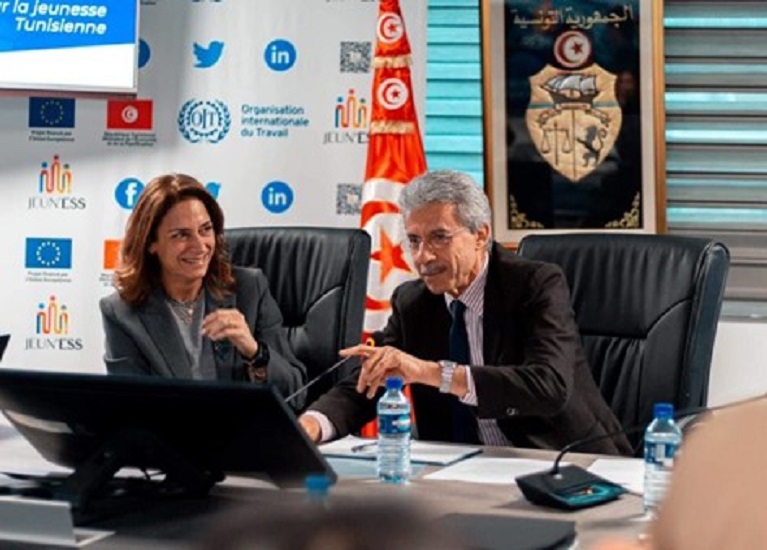
However, economic difficulties and the slowing down of the production apparatus have considerably reduced the capacity of the private sector to create new employment opportunities. In this situation, the promotion of self-employment through individual or collective entrepreneurship has a potential to significantly reduce unemployment among young people, including in the informal economy.
It is in this context that the social and solidarity economy (SSE) has been identified by the Tunisian government and the social partners as a sector with significant potential for reducing social inequalities, promoting inclusion, creating jobs, wealth and a path to the formal economy.
Achievements :
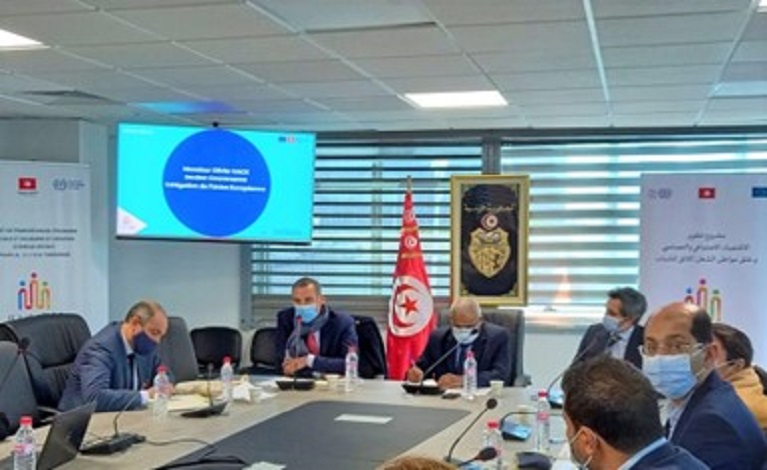
JEUN'ESS is one of the ILO projects working on the Social and Solidarity Economy in Tunisia. They focus on optimizing the "solidarity chain" to enable greater added value for Tunisian products. They support SSE entities, such as cooperatives, to strengthen their production, transform and diversify their products, and access markets through better marketing and certification strategies.
These projects concentrate on creating the first generation of SSE entities in Tunisia following the adoption of the law in 2020. The Social Innovation Fund was thus created to select over 100 SSE new projects. They are currently for a period of six months, resulting in legal establishment and providing technical and financial support to beneficiaries. In less than two years, 42 SSE organizations have already benefited from technical and financial support to develop their activities.
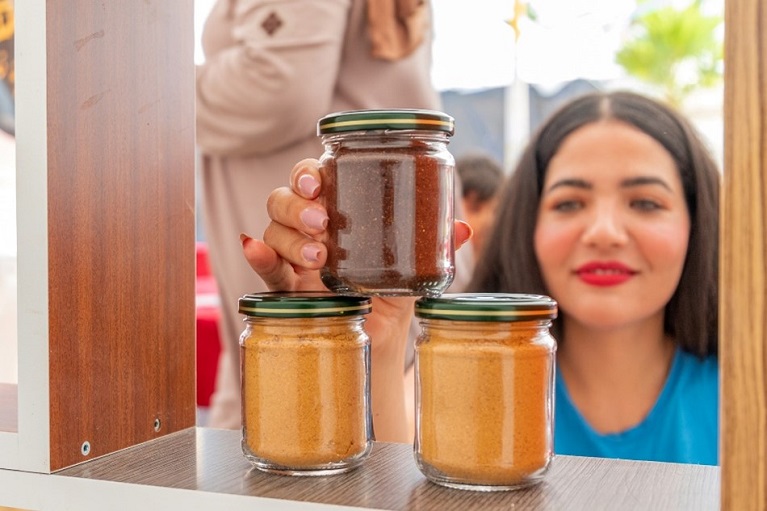
The "Community Fund" also provides support to local communities and social partners for the development of SSE projects. An SSE guide for local communities has been developed to allow greater capitalization and coordination of SSE action at the local level.
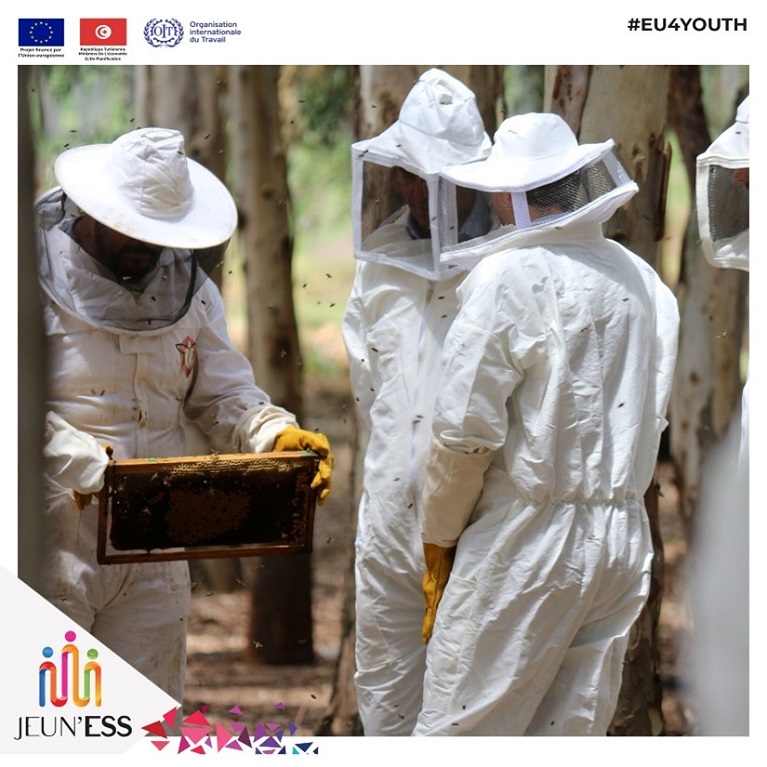
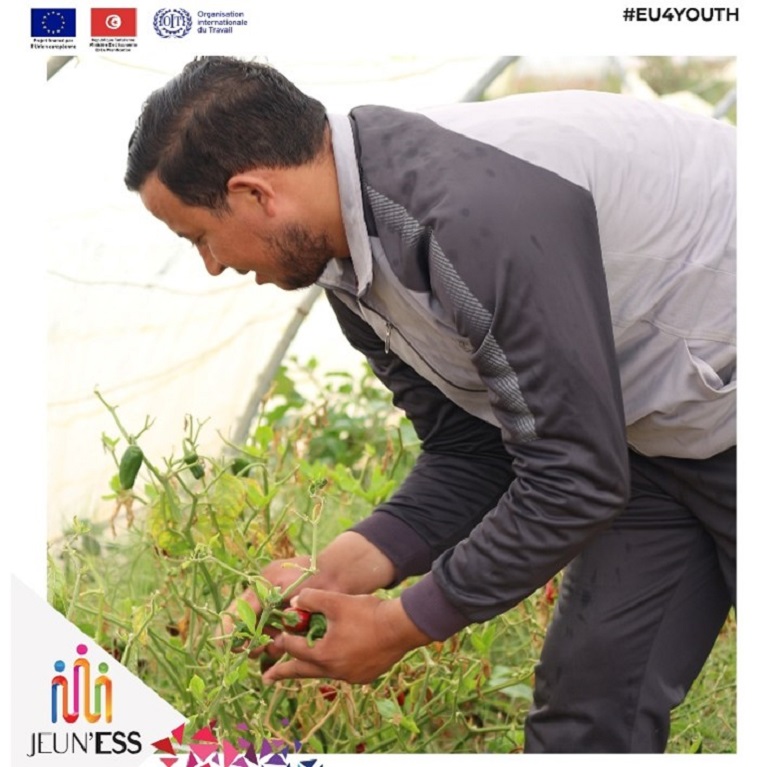
Marketing in the context of the Social and Solidarity Economy encompasses several key points:
- Moving towards local markets at the national or international level.
- Drawing inspiration from the proximity between producers and consumers to develop a relationship of trust that fosters customer loyalty and economic development.
- Valuing local raw materials through natural products and traditional local craftsmanship. The product primarily tells a story that will be valued to attract consumers.
- Emphasizing transparency so that consumers can have detailed information about the product they are purchasing, including the source of raw materials, the techniques used, and the names of the producers.
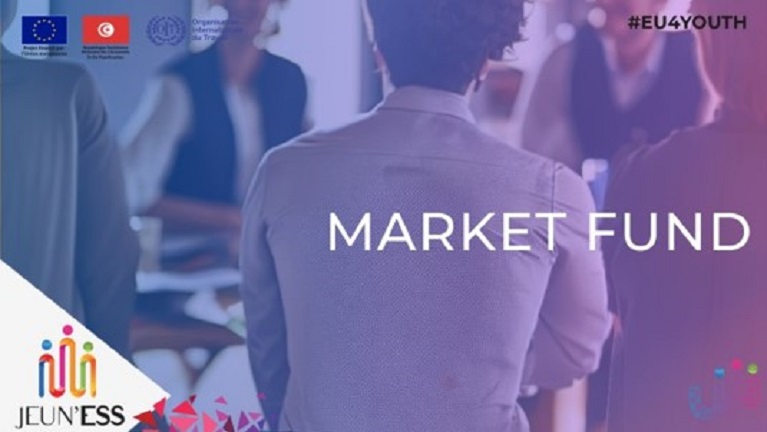
These initiatives are delivered in collaboration with the daily support of the ILO COOP unit in Geneva.
Institutional partners
- Ministry of Development, Investment and International Cooperation (MDiCI) (Main partner)
- Ministry of Agriculture, Water Resources and Fisheries (MARHP)
- Ministry of Vocational Training and Employment (MFPE)
- Ministry of Social Affairs (MAS)
- Social partners: Tunisian Union of Industry, Trade and Handicrafts (UTICA); Tunisian General Labour Union (UGTT); and Tunisian Union of Agriculture and Fisheries (UTAP)
Goals
Development objective:The promotion of decent work for young people through the SSE.
Specific objectives:
- Improvement of knowledge on the SSE value chains and the characteristics of the informal economy at regional level
- Capacity building of SSE support organizations
- Creation of decent jobs at local level through the SSE in six governorates
- Improving the working conditions of workers in the informal economy through the SSE
Ultimate beneficiaries
- Young people in the project intervention area
- SSE organizations
- Support and accompaniment structures for SSE organizations
Expected results
- Survey on informality carried out in the target governorates
- Local economic opportunities in the SSE and value chains identified
- Results of the survey and studies utilized
- Project monitoring and evaluation system developed
- Regional SSE support structures identified
- Capacities of SSE support structures improved
- Operational SSE clubs within professional training centres established
- Operational and transparent SSE funding systems established
- Individual self-entrepreneurs organized into SSE groups
- Income of self-entrepreneurs sensitized to the SSE improved thanks to better access to markets
